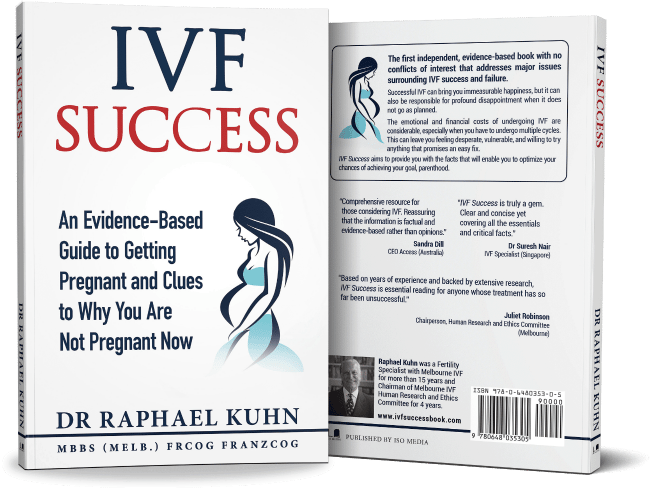The following is an edited extract from ‘IVF Success: An Evidence-Based Guide to Getting Pregnant and Clues to Why You are Not Pregnant Now’ by Dr Raphael Kuhn.
Sally, who was 36, and her husband, Sam, who was 37, were desperate to start a family.
An unexpected inheritance had paid off their mortgage. They tried very hard for six months to get pregnant and were becoming increasingly stressed, especially Sally.
Sally dealt with her stress by talking to her extensive network of girlfriends over multiple cups of coffee and a cigarette or two, and relaxing with her husband over a couple of glasses of white wine in the evenings.
More often than not, they finished the bottle. Sally also tried to cope with her stress by engaging in regular, almost daily, intense gym sessions.
Sam got support from his friends over a few beers on weekends. They joked that there might be a problem with his “swimmers.” As it turns out, there was.
Listen: Meshel Laurie gets very honest about her struggle to get pregnant with a partner who wasn’t interested in having kids.
Sam’s family physician (general practitioner) arranged for him to have a sperm test. This revealed not only a low sperm count, but also a high percentage of abnormal sperm. The test was repeated, and the result was the same.
Sally and Sam were referred to a fertility specialist.
Sound advice
Their fertility specialist insisted on lifestyle changes because alcohol, nicotine, and excessive caffeine intake and exercise are all known to adversely affect chances of both natural and IVF conception.



Top Comments
I’m afraid I’m not buying it.
Most other doctors and OBs acknowledge the impact of stress on trying to fall pregnant, but somehow the IVF process is different and stress no impact, according to this specialist. Quite convenient when people tend to be more stressed under the IVF process given the money and time spent. Hmmm.
Physiologically, the IVF process of conception and subsequent successful implantation is VASTLY different to that of a "natural" conception. I'm afraid you're comparing apples and oranges here.
So stress plays no part whatsoever? Must provide that feedback to the GPs, OBs and fertility specialists I/friends/family/colleagues have seen in the past...
I'm not a gynaecologist, but the article here cites some evidence that suggests that no, stress is not a significant factor in successful IVF conception. It's not my field so unfortunately I cannot comment on the veracity of the cited references (a good medical editor - something MM sorely lacks - would be a good addition in this case). Unfortunately the article title is somewhat misleading and may lead people into thinking this advice extends outside the IVF context, wherein stress *is* a significant impairment to conception. For example, menstrual disturbances caused by stress may reflect irregular ovulation, therefore reducing the chances of conception. As IVF pharmacologically induces ovulation, that's one step that is mitigated compared to the "natural" process.
I understand what you are saying and agree re the way the article is written. However while that one step is mitigated with IVF, there are still other steps where stress can play a part and that’s what I was highlighting. It seems that conception, natural or otherwise, is one area where many doctors and specialists agree that there is a large element of the unknown and so far unexplained. I feel that articles like this may give people some false hope around the IVF process and it’s chances of success.